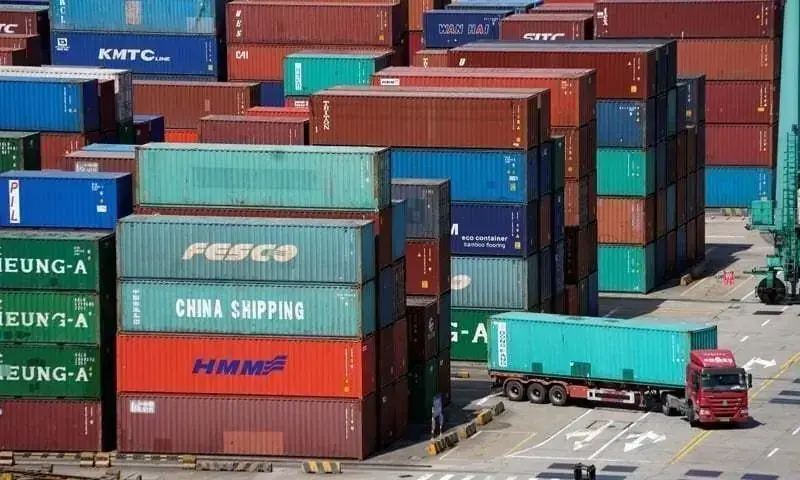The Ministry of Maritime Affairs has directed a series of measures to ease congestion at Port Qasim, including enforcing a first-come, first-served berthing policy, while urging improved coordination between the Trading Corporation of Pakistan (TCP) and port authorities.
The ministry has initiated measures to streamline sugar and cement handling operations at Port Qasim following reports of severe congestion caused by the slow discharge of sugar consignments, read a statement on Saturday.
A high-level meeting chaired by Federal Minister for Maritime Affairs Muhammad Junaid Anwar Chaudhry reviewed the situation and its impact on export activities, particularly cement and clinker shipments.
Addressing the meeting, Chaudhry underscored the need to enhance operational efficiency, align port management with national logistics priorities, and ensure smooth coordination among stakeholders.
The minister stressed the need for all ports to enhance their operational efficiency to ensure the smooth and timely discharge of consignments, noting that improving these operations is vital to prevent port congestion, which can cause delays, raise costs, and disrupt the supply chain.
Pakistan’s PNSC partners with Chinese firm to explore maritime investments
The meeting was informed that sugar was being unloaded at a rate lower than the port capacity. The minister directed the Port Qasim Authority (PQA) to optimise sugar unloading operations in line with its discharge capacity of around 4,000 to 4,500 tons per day.
The meeting also reviewed directives from the Prime Minister’s Office, which included utilising Gwadar Port for up to 60% of sugar imports to ease the load on Karachi’s terminals.
Participants also discussed berthing priorities and measures to prevent bottlenecks affecting the turnaround of export-bound ships.
It was agreed in the meeting that all vessels at Port Qasim and Karachi Port would be berthed strictly on a first-come, first-served basis, read the statement.
Both port authorities were tasked with enforcing the berthing policy and closely monitoring discharge performance, with penalties to be imposed in cases of unnecessary delays.
The federal minister directed all relevant agencies, including TCP and
other state importers, to synchronise their freight movement plans
with the Ministry of Maritime Affairs ahead of cargo arrivals.


